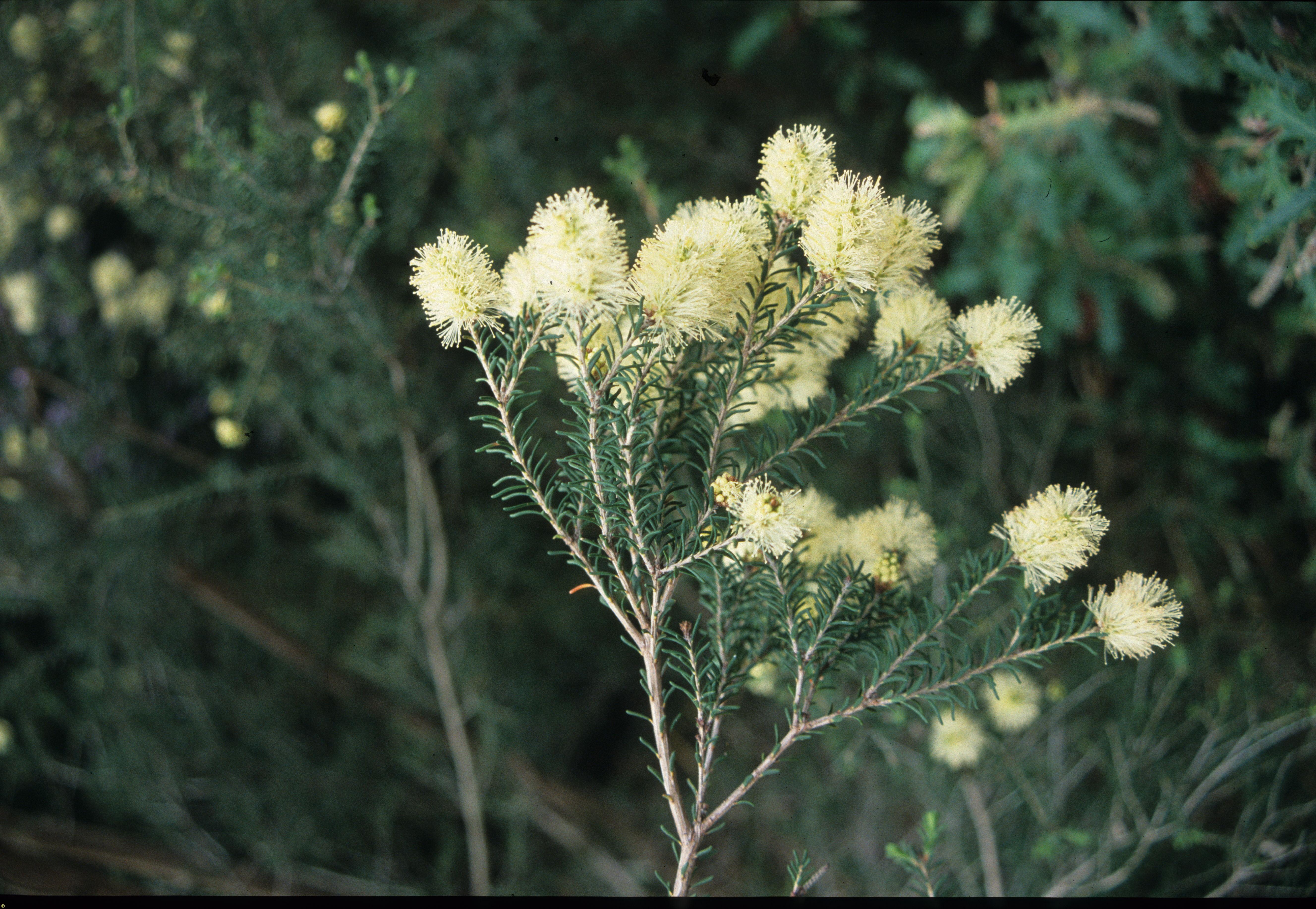Scientific Name: Melaleuca pustulata Endemic Having a natural distribution confined to a particular geographic region
Common Name: warty paperbark
Family Classification (Clade): Eudicots
Family: Myrtaceae
Threatened Species Status: Rare
Permit: It is an offence to collect, disturb, damage or destroy this species unless under permit.
Form Description: Glabrous much-branched shrub with spreading crown.
Height (m): 1 – 5
Flowers: Yellow, few together in terminal heads about l cm in diameter.
Fruit: Woody capsule 3-4 mm long; persistent.
Municipality
Plant Communities
Habitat Notes
Local near the east coast as at Oyster Bay and up to 20km inland.
Site Tolerance
Dry, Exposed, Moist, Rocky, Windy
Soil Tolerance
Fertile, Loam, Nutrient-poor, Well-drained
Frost Tolerance
Hardy
General Notes
Melaleuca pustulata has pustule-like protuberances on its leaves which distinguish it from Melaleuca ericifolia. Bird attracting. Susceptible to browsing by possums and wallabies.
Propagation Calendar
-
Flowering Month
Jan Feb Mar Apr May Jun Jul Aug Sep Oct Nov Dec -
Seed Collecting Month
Jan Feb Mar Apr May Jun Jul Aug Sep Oct Nov Dec -
Sowing Month
Jan Feb Mar Apr May Jun Jul Aug Sep Oct Nov Dec -
Cutting Month
Jan Feb Mar Apr May Jun Jul Aug Sep Oct Nov Dec
Propagation Method
Seed Information
Seed Treatment Method
Bog Method The seeds of many wetland species need to be kept wet to germinate. Punch a hole in the side of a recycled polyfoam box so that it holds water to the required depth. Sit the tubes in the box to germinate. Once germinated, punch holes in the bottom of the box to allow drainage.
Seed Storage Life
Long
Seed Treatment Notes
Keep very damp after sowing. If no growth is obvious 2 weeks after germination soluble fertilizer may be used.
Germination Time
10-30 days
Cutting & Division Information
Cuttings probably best taken in summer months – 10cm long.
